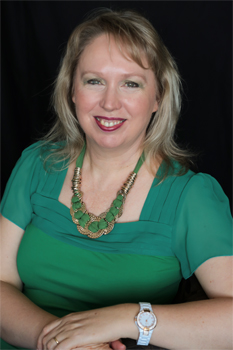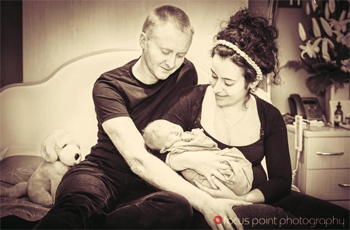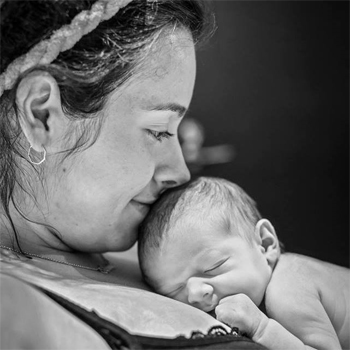Dianne Zalitis Pregnancy, Birth and Baby Interview

Dianne Zalitis Pregnancy, Birth and Baby Interview
Australian parents will turn to friends and family about their child's behaviour and development before seeking advice from healthcare professionals, a new survey from Pregnancy, Birth and Baby has found – meaning thousands of Australians may be following outdated and inaccurate advice when it comes to parenting.
The new online survey1 of more than 1,000 Australian parents of children aged up to 5 years reveals healthcare professionals, including GPs, pharmacists and maternal child health nurses, rank third as the source parents turn to most for information on their child's behaviour and development – behind friends and family. This means Australian parents may be missing out on clinically approved advice to help their child as they grow from birth to pre-school age.
'No matter the age of their child, parents will face many challenges, doubts and obstacles during the first five years of child rearing," said Ms Dianne Zalitis, Clinical Lead of Pregnancy, Birth and Baby.
'Friends and family are an invaluable source of support for parents – but may not always have the most up-to-date and accurate information to answer the many questions and challenges parents face," she said.
Adding to their concerns, one in three (33%) Australian parents admit they are reluctant to seek advice about their child's behaviour and development because they fear being judged or seen as a failure – while more than half (58%) have compared themselves or their child's progress unfavourably with others.
Pregnancy, Birth and Baby is a national initiative of the Australian Government and offers parents confidential and non-judgemental support, guidance and advice from maternal child health nurses. Available seven days a week, parents can access the service for free – via phone, video call or through www.pregnancybirthbaby.org.au – from the comfort of their own home.
'The most important thing for parents to remember is that they are not alone, and there is always credible and qualified information, advice and support on hand to help them navigate through the challenges and joys of parenthood," Ms Zalitis explained.
Sleep troubles
For most parents, ensuring their child gets enough sleep is a concern that carries on throughout the first two years. While this was the biggest concern for almost two thirds of parents (62%) during their baby's first year, almost half (45%) reported this was still the biggest concern when their child was in their second year.
'We all know how important our sleep is, and the first two years is a long time to struggle with sleep. It's not only essential for the baby's growth and development, but also for the health and wellbeing of parents," said Ms Zalitis.
Behavioural challenges
For parents of toddlers (38%) and pre-schoolers (41%), experiencing and managing behavioural challenges with their child is a key concern.
According to the survey, 32 per cent of Australian parents will seek advice about tantrums and discipline from friends and family, ahead of seeking this advice from a maternal child health nurse (22%) or GP (10%).
'Behavioural issues in children such as biting, hitting, scratching, arguments or tantrums, are a real worry for parents," said Ms Zalitis.
Reaching milestones
Whether their child is reaching their milestones is a concern for parents at all stages of their development, from babies (38%), to toddlers (36%) and pre-schoolers (35%). When it comes to toilet training, 37 per cent of Australian parents consult their friends and family for advice, compared to just 22 per cent who seek this guidance from a maternal child health nurse, and 9 per cent from a GP.
Other typical developmental milestones for children include:
0-12 months: smiling, rolling, sitting up, crawling, first words
1-2 years: walking, talking, pointing, hugging
3-5 years: talking in sentences, jumping, holding a pencil and scribbling, understanding and following instructions
'Watching their child reach milestones from when they are born, to when they are ready for school at five, is a rewarding time for parents," said Ms Zalitis.
'It's important to remember that all children are different and will develop skills and reach their milestones at different times. This is normal. If a child hasn't reached every milestone, they might just need a bit more time," she continued.
'Speaking to a health professional can help provide parents with reassurance about what is typical for a child at various stages of their development, or when it might be appropriate to act on concerns," Ms Zalitis said.
Trusted, credible advice
With eight in 10 Australians now turning to the internet for their health information2, it is no surprise that this is also a go-to source for time poor parents looking for advice. The survey reveals that when parents search online for information about their child's behaviour and development, the top three sources they trust most include:
1. Websites that have information from medical professionals
2. Websites that specialise in children's issues
3. Australian Government websites
'We are encouraged by these results as Pregnancy, Birth and Baby meets all of these criteria, so parents can feel confident when using our service," said Ms Zalitis.
The free Pregnancy, Birth and Baby service is accessible by contacting 1800 882 436 or visiting www.pregnancybirthbaby.org.au.
Interview with Dianne Zalitis, Clinical Lead for Pregnancy, Birth and Baby
Question: What is the Pregnancy, Birth and Baby initiative?
Dianne Zalitis: Pregnancy, Birth and Baby is a free Australian Government service offering parents confidential and non-judgemental support, guidance and advice from maternal child health nurses. Available seven days a week, parents can access the service for free – via phone, video call or through www.pregnancybirthbaby.org.au – from the comfort of their own home.
Question: Who does the Pregnancy, Birth and Baby initiative aim to help?
Dianne Zalitis: Pregnancy, Birth and Baby supports parents on the journey from pregnancy, to baby and pre-school. Our maternal child health nurses provide guidance and reassurance about behavioural and development concerns such as sleeping, settling, feeding, toilet training and tantrums.
Question: What does Pregnancy, Birth and Baby receive the most calls regarding?
Dianne Zalitis: The Pregnancy, Birth and Baby helpline received the most calls from parents concerned about crying or an unsettled baby, breastfeeding and baby development.
Question: Can you talk us through the stigma around parents asking for help when they need it?
Dianne Zalitis: A consumer survey of over 1,000 Australian parents by Pregnancy, Birth and Baby recently revealed that 1 in 3 parents are reluctant to seek advice about their child's behaviour and development because they fear being judged or seen as a failure – while more than half have compared themselves or their child's progress unfavourably with others.
Sometimes parents don't ask for help because they feel like they should already know the answers, or they don't feel like they are asking the right questions, or they are worried about wasting other people's time. This is particularly the case when asking for help from healthcare professionals.
Pregnancy, Birth and Baby can help. It's available 7 days a week and parents can speak directly with expert maternal child health nurses who can provide qualified guidance, reassurance and support for all of their questions. What's great is that the service is confidential and free, so parents never have to worry about asking for help again.
 Question: How can Australians reduce the stigma around parents asking for help?
Question: How can Australians reduce the stigma around parents asking for help? Dianne Zalitis: The most important thing for parents to remember is that they are not alone, and there is always credible and qualified information, advice and support on hand to help them navigate through the challenges and joys of parenthood.
Question: What types of challenges do new parents face?
Dianne Zalitis: No matter the age of their child, parents will face many challenges, doubts and obstacles during the first five years of child rearing.
For most parents, ensuring their child gets enough sleep is a concern that carries on throughout the first two years. While this was the biggest concern for almost two thirds of parents (62%) during their baby's first year, almost half (45%) reported this was still the biggest concern when their child was in their second year.
For parents of toddlers (38%) and pre-schoolers (41%), experiencing and managing behavioural challenges with their child is a key concern. Behavioural issues in children such as biting, hitting, scratching, arguments or tantrums, are a real worry for parents.
Whether their child is reaching their milestones is a concern for parents at all stages of their development, from babies (38%), to toddlers (36%) and pre-schoolers (35%).
Question: Why do you think a third of Australians are reluctant to seek advice about their child's behaviour and development?
Dianne Zalitis: 1 in 3 Australian parents are reluctant to seek advice about their child's behaviour and development for fear of being judged or seen as a failure.
Question: Why is it important that parents don't compare their children, with others?
Dianne Zalitis: It's important to remember that all children are different and will develop skills and reach their milestones at different times. This is normal. If a child hasn't reached every milestone, they might just need a bit more time.
Speaking to a health professional can help provide parents with reassurance about what is typical for a child at various stages of their development, or when it might be appropriate to act on concerns.
Question: Why is it best that Australians seek advice from healthcare professionals rather than their friends and family?
Dianne Zalitis: Our survey showed that Australian parents will often turn to friends and family about their child's behaviour and development, before they seek advice from healthcare professionals. While friends and family are an invaluable source of support for parents, they may not always have the most up-to-date and accurate information to answer the many questions and challenges people face.
With Pregnancy, Birth and Baby, parents can be reassured that they are getting the latest, qualified information from expert maternal child health nurses, 7 days a week.
Interview by Brooke Hunter
MORE
- Midwife Cath Interview
- Colin Anson Interview
- Why Good Health is Essential to Increase Fertility
- 5 Beauty Products to Avoid When You are Pregnant
- Looking After You, Looking After Your Baby
- Andre Carvalho International Pregnancy and...
- NRL Player v Mums
- Safer Internet Day
- The Pink Elephants Support
- Edwina Sharrock Birth Beat Interview
- Make Mums Group Dad-Friendly




